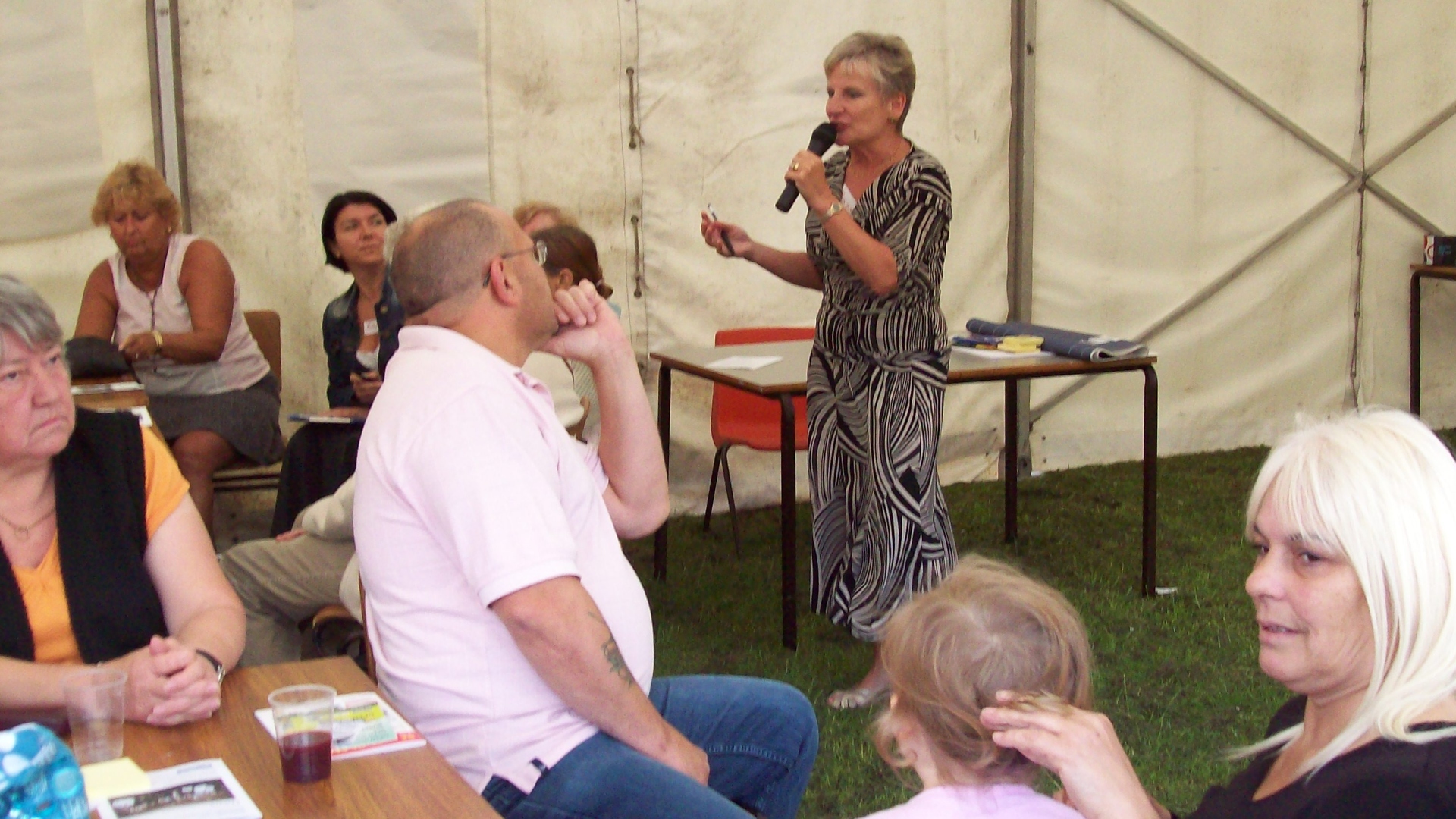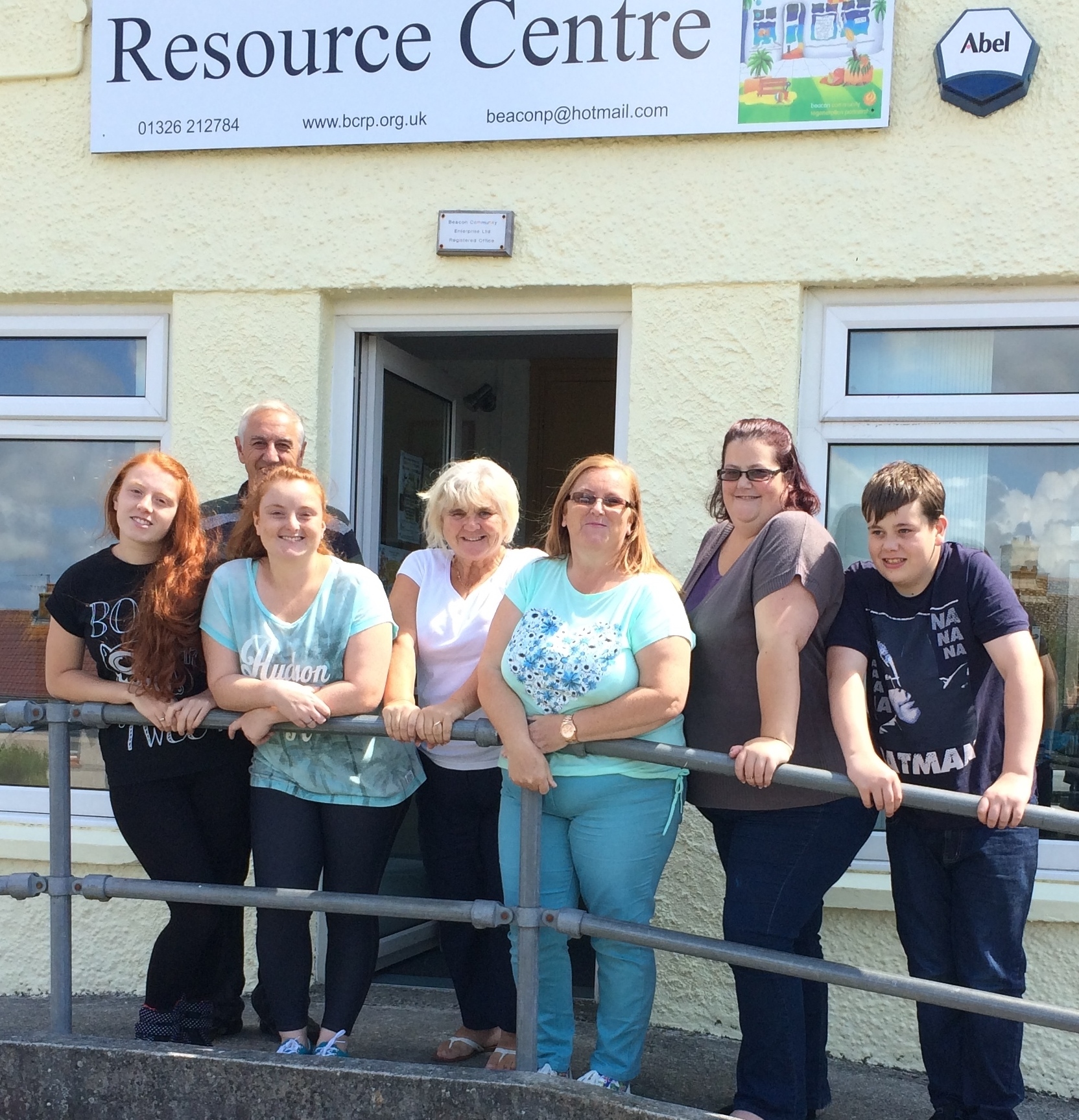From isolation to transformation
C2 is a people-focused community empowerment learning programme that enables communities to increase control over their lives and their neighbourhoods, to positively transform their health and social status.
There is one goal – to create a better place to live and work for residents and their support services.
Implementing a structured, practical programme of co-learning and jointly run community connecting and listening events achieves a positive new dynamic for relationships and equal power balance.
Working together forms long-lasting resident-led, problem solving partnerships that demonstrate high levels of resilience and coping skills despite deep austerity and service cutbacks.
We learnt how to do this in the 90s when, with no start-up funding whatsoever the community led a dramatic turn around of a troubled estate in Cornwall (the Beacon Project).

The development of C2
The Beacon Project delivered dramatic outcomes that transformed a deeply troubled social housing estate (population 6000) suffering poor health and violent crime, against a backdrop of poverty, unemployment and sub-standard housing. With no start-up funding and within four years, the housing stock improved, crime halved and unemployment fell.
Success was born from the residents and service providers – housing, police, fire service and education – collectively forming the Beacon Community Regeneration Partnership (BCRP) partnership to generate £2.2 million to transform the area.
The Beacon Project provided the evidence base to develop the powerful C2 7-Steps Pathway. These steps create the conditions needed for transformative change by identifying local barriers to health and wellbeing.
What evolved in the Beacon Project has since been replicated and the C2 principles applied in more than 35 communities across the UK. Through the C2 National Network of Partnerships and Community Hubs, experiential learning programmes, site visits and workshops are available to show you how to apply the principles.
The C2 theory of effective change
During a chance meeting with C2 co-founder GP Dr Jonathan Stead, Hazel discovered the theory of ‘complexity science.’ Hazel recognised similarities between the science and the intuitive methods used within the Beacon Project transformation.
Further exploration with complexity enthusiasts from Exeter Medical School University led to the foundation of the Health Complexity Group in 2002.
With secured funding this team of frontline medics and academic researchers carried out retrospective research to identify transferable key success factors from The Beacon Project and in 2004/5 the Community Regeneration Evaluating Sustainable Transfer (CREST) report was published, leading to the official development of the Connecting Communities Seven Step programme.
“[Complexity science] placed great value on widespread connectivity, the creation of new relationships and dialogue based on trust. Conversations, humility and respect contributed hugely to the creation of that all-important enabling environment,” Hazel Stuteley.

Proven track record
To date UK spread has been rapid, via a mix of social movement and commissioned sites….
The C2 7-Step Pathway to Partnership has been adopted by the Health Empowerment Leverage Project, hosted by the NHS Alliance and funded by the Department of Health, with successful projects in Solihull, Wandsworth and Devon.
C2 has been sponsored by the NHS Institute for Innovation and Improvement and its knowledge framework adopted by the Marmot ‘Healthy Places, Healthy Lives’ Fellowship.
Put an end to the challenges communities face – get in touch today, we love to talk.
Who we work with
With its long history, C2 enjoys a huge range of receptive collaborators at strategic, academic and community level.
Specifically our strongest partners are:
-
C2 National Network of Community Partnerships
Other collaborators include:
-
Sir Harry Burns (CMO Scotland 2005-14)
-
Lord Nigel Crisp (CEO NHS England 2000-2006)
